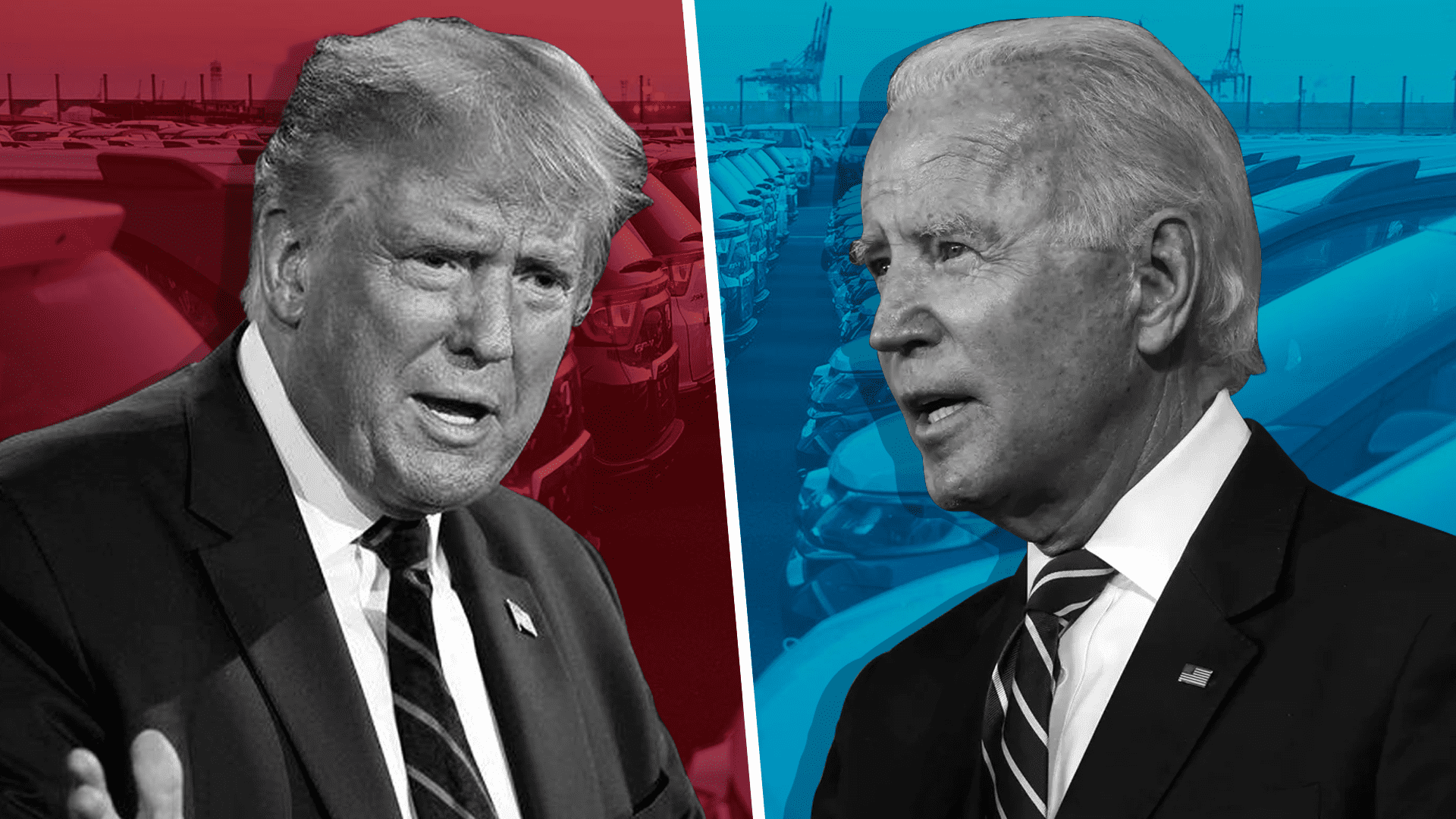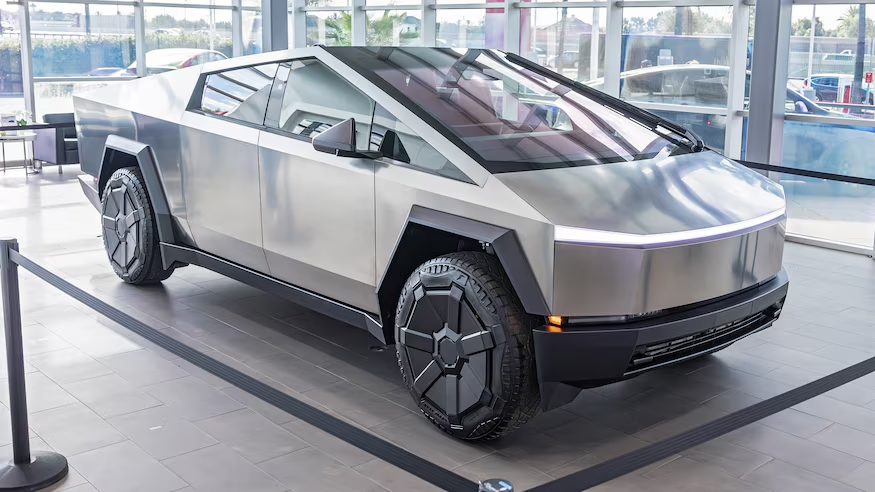The current 2020 presidential candidates diverge on many issues, and the US auto industry is no exception. For undecided voters, it can be challenging to sort out who takes which position. Here are some points to consider as we head into the final days of the election.
Tradition vs. Innovation
While both Trump and Biden desire to increase car manufacturing jobs, they disagree on how to create them. Biden appears to see green reform and technological advancement as the route to take; Trump favors reshoring and trade deals.
Biden: A Green Future, Expanding Global Trade, Offshoring Penalties
Biden, and his platform, in general, look toward a greener future. If elected, he hopes to forward electric vehicles’ (EV) momentum and connect the industry more closely with the tech. Biden has outlined a goal of investing in over 500,000 EV charging stations, raising mpg standards, and restoring EV tax credits to encourage purchases. He sees green infrastructure as a potential driver for increased employment.
To dissuade companies from moving jobs overseas, especially in light of his proposal to raise corporate taxes, Biden plans to enact a 10% offshoring penalty surtax on US goods produced abroad and sold in the States. That said, he has expressed a need for US businesses to engage in the global market following global rules.
Trump: Rightshoring Manufacturing, Continued Tax Cuts, Tariffs, Deregulation
Meanwhile, Trump has a more traditional vision for the auto industry and talks explicitly about building up auto manufacturing in the country. Before COVID-19, the president’s USMCA deal encouraged large companies to bring projects and jobs back to the US. At the same time, he placed tariffs on many Chinese imports, including auto parts, with mixed impacts on the industry. Though Trump’s cuts to corporate taxes are believed by some to have helped the industry, others argue that the tariffs have amounted to taxes in the long run.
When it comes to green energy and EVs, his administration has proposed eliminating federal tax credits for EVs and revoked California’s waiver for setting vehicle emissions rules. In general, Trump’s energy policies favor coal and oil; in other words, traditional fuels for traditional cars. He has rolled back many Obama-era environmental standards, including those for vehicles, citing deregulation as a vital step in encouraging free-market growth.
Related: Trump vs. Biden: What Are their Plans for the Auto Industry?
Split Support
Regarding what the auto industry feels about the two candidates, support is split. The United Auto Worker’s union gave their endorsement to Biden, citing the candidate’s history of stable leadership and their hopes that he would help heal partisan rifts while protecting workers. They echo a sentiment shared by many that a Bide presidency would be more consistent and predictable, making growth easier to plan and maintain.
However, OpenSecrets.org shows that most individual contributions associated with Ford, GM, and Fiat Chrysler Automobiles NV trend toward the president. This could be because Democratic donations were split early on among many candidates, but could also be an endorsement of some of Trump’s first term policies.
Conclusion
Both candidates have strong positions on the future direction of the auto industry. With Biden, voters choose to focus on the environment, with jobs created through green technology, and a return to and expansion of many of the Obama-Biden years’ incentives and policies. With Trump, voters get an emphasis on reshoring jobs through tax cuts and tariffs, with deregulation leaving environmental decisions in the hands of the auto companies. Next week, voters will need to decide which platform aligns best with their goals for the near and long-term future.
Related: Joe Biden: “Move to the vehicles of the future”
Did you enjoy this article from Chana Perton? Read other articles from her here.
Be sure to follow us on Facebook and Twitter to stay up to date or catch-up on all of our podcasts on demand.
While you’re here, don’t forget to subscribe to our email newsletter for all the latest auto industry news from CBT News.








